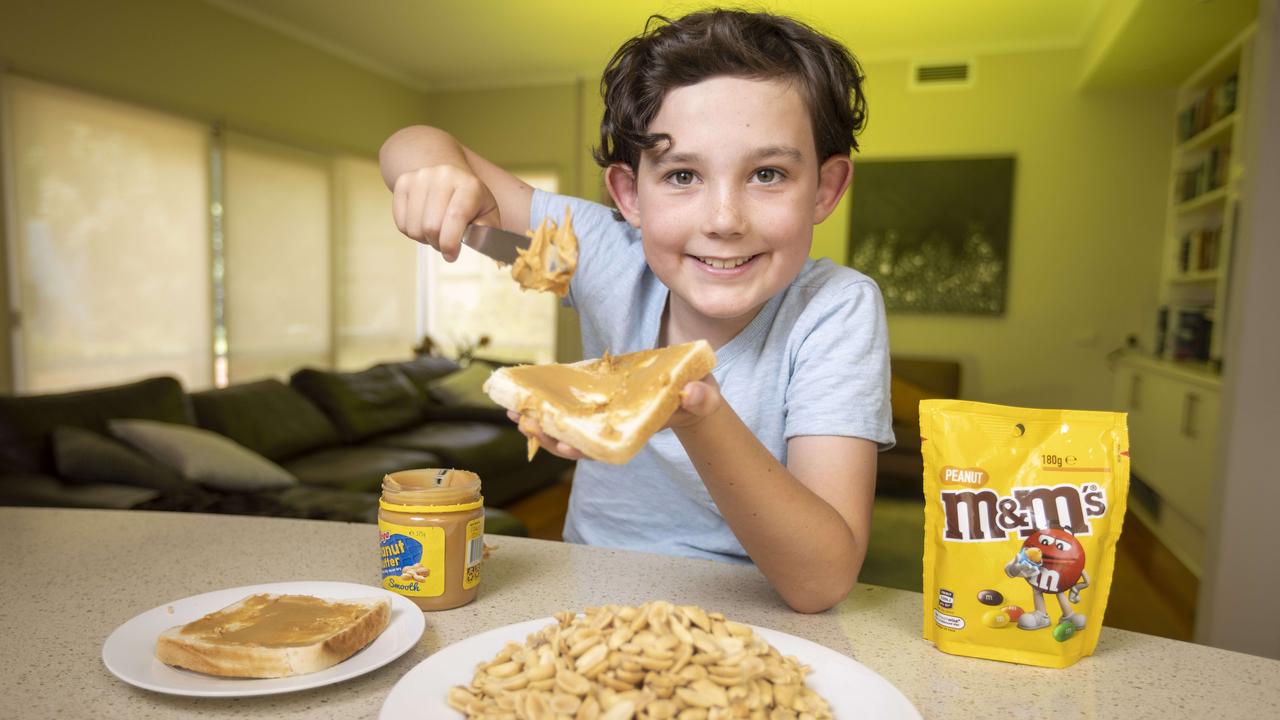Fresh hope for kids with severe peanut allergies
A breakthrough treatment is giving children with severe peanut allergies hope of being able to freely enjoy the once dangerous nut.

Victoria
Don't miss out on the headlines from Victoria. Followed categories will be added to My News.
Melbourne researchers have found two new treatments that are allowing about half of children with peanut allergies to eat the once dangerous allergen freely, even after stopping therapy.
The breakthrough finding from the Murdoch Children’s Research Institute large clinical trial, is a crucial step in turning this immunotherapy treatment into the first commercially available therapy to help push kids as young as 12 months old into remission.
The study of 201 children found the two treatments – a combination of a probiotic together with the gradual introduction of peanuts via oral immunotherapy, as well as just immunotherapy alone – offered a high level of protection to three quarters of children.
About half of the children achieved remission after 18 months on the treatment – 46 per cent on the combination treatment and 51 per cent on just immunotherapy – allowing them to stop treatment and safely eat peanut freely.
A year on after stopping treatment, 99 per cent of those in remission were eating peanuts as often as they liked.
Additionally, a quarter of children achieved desensitisation – a level of tolerance that protects them from accidental exposure to roughly a standard serve of peanut– meaning they could tolerate eating a snack size bag of peanut M & Ms after 18 months of treatment. But they needed to stay on treatment to maintain that protection.
Lead researcher Professor Mimi Tang said while adding the probiotic to immunotherapy did not boost the effectiveness of the treatment, the combination was better tolerated with 20 per cent fewer side effects overall.
Preschool children, particularly, reported 30 to 50 per cent fewer gastro problems that are the most frequent symptoms associated with immunotherapy.
“We’re not suggesting it’s a cure, but clinical remission is so important as it means we can’t show any evidence of peanut allergy after treatment has stopped for a while,” Prof Tang said.
“It’s a reprogramming of the immune system away from allergy towards a tolerance state.”
The findings, published in the journal The Lancet Child and Adolescent Health, back up results from their previous proof-of-concept study, which found the combination treatment induced 74 per cent of children into remission.
Of those children, 70 per cent were still in remission and able to eat peanuts freely and safely four years later.
Declan Lawlor could eat peanuts with a problem until at age four – out of the blue – he suffered an allergic reaction to a slice of peanut butter toast.
Mum Kate Lawlor said seeing her boy’s whole face, eyes and tongue swell up was “pretty frightening” and they were told by allergy specialists that he would need to carry an EpiPen for the rest of his life.
But after 18 months on the clinical trial, where he built up his tolerance through gradually increased increments each day, the now-nine-year-old can eat peanuts freely.
“Having to trust every time you hand him over for a playdate that someone is going to understand the seriousness of it and act on it. It was very anxiety provoking, and you’d be wondering the whole time is he OK?” said Ms Lawlor.
“Now, it’s been unbelievable. We are just thrilled he is in remission. He eats 8-10 peanut M & Ms every week. He calls it his chocolate medicine.”
Prota Therapeutics, a biotech company that spun out of MCRI five years ago to develop the peanut immunotherapy into a commercial treatment, is now raising investment capital as the next step to getting it into the clinic.
“We’ve shown both treatments have value, and we want to get the first treatment out to patients as soon as possible,” said Prof Tang.
“It works. It’s safe and tolerated well.
“In my research group, we have always considered we need to give something better to patients than desensitisation.
“I want my patients to be able to live like a child who doesn’t have an allergy.”
Originally published as Fresh hope for kids with severe peanut allergies








